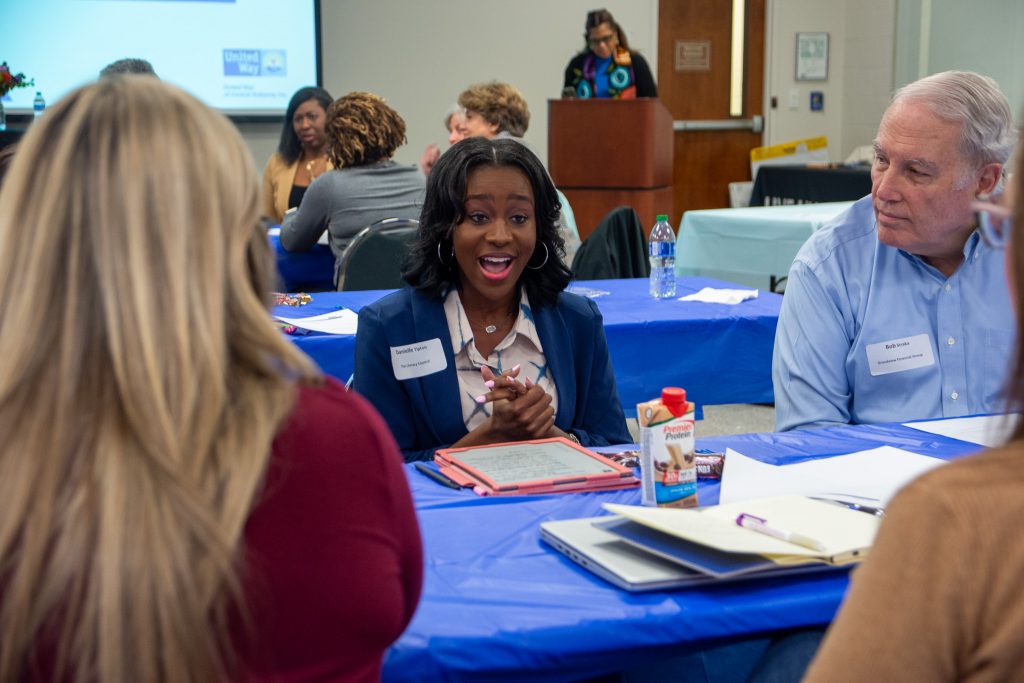
For most of her career, Sophia Leverson has served as a frontline public health worker. Until recently.
Having previously worked in the field of analysis at a UAB HIV clinic, the Jefferson County Department of Health (during the pandemic) and Children’s of Alabama, it was just last November that she branched out into administration for the first time.
Her new role: Executive Director of the Central Alabama Chapter of the Sickle Cell Disease Association of America, a United Way of Central Alabama (UWCA) partner agency.
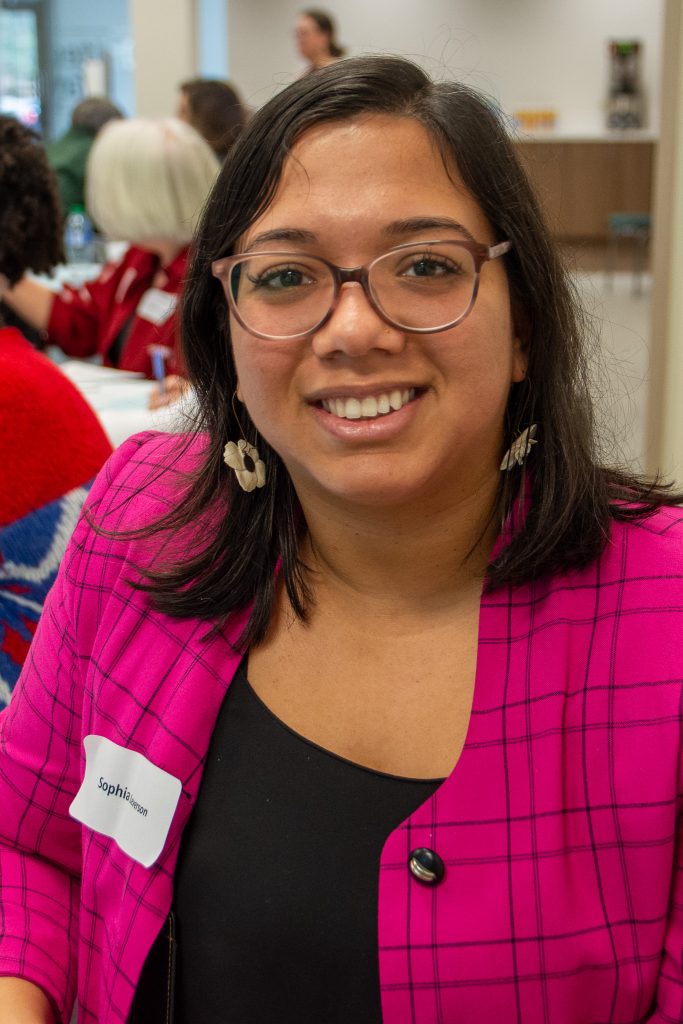
Serving as a nonprofit’s executive director comes with a long list of responsibilities that are quite different from those of most other jobs. And even if the person possesses the skillset necessary, navigating the new terrain can still be a major learning experience. This is but one example of the need for UWCA’s new training series for nonprofit professionals.
For Leverson, the timing of the most recent training session was perfect. The curriculum was specifically for nonprofit executive directors and board members. It was an event that she said was valuable for nonprofit leaders new and old.
“When you stop learning, you stop growing; and I think it’s important for us not to get stagnant,” Leverson said. “The world is constantly changing, and whether you’ve been doing this for two months or 20 years, there’s always something you can learn.”
The training day, one of many that UWCA holds throughout the year, centered on a variety of group discussions concerning the differences between the roles of boards of directors and executive directors. The day culminated in a panel discussion with three experienced local agency leaders:
- George Casey, Executive Director of Impact Family Counseling
- Brian Hamilton, Board Chair of A.G. Gaston Boys & Girls Club and the Community Foundation of Greater Birmingham
- Lauren Schwartz, Executive Director of Collat Family Jewish Services
Additionally, Drew Langloh, UWCA President and CEO, and Chip Bivins, UWCA Board Chair, had a ‘Fireside Chat’ early in the day to articulate the differences in responsibilities between boards and executive directors, as well as the challenges that many nonprofits face.
Bivins said organizations work best when the division of labor is clear.
“I think the long-term health of an organization, the long-term effectiveness of a board, is impacted by how clearly that line is defined and to what extent both sides respect that line, and I think for the most part, everybody’s comfortable with that,” Bivins said. As an executive director, “You want your board to do their job, but you don’t want them trying to do your job,” he said.
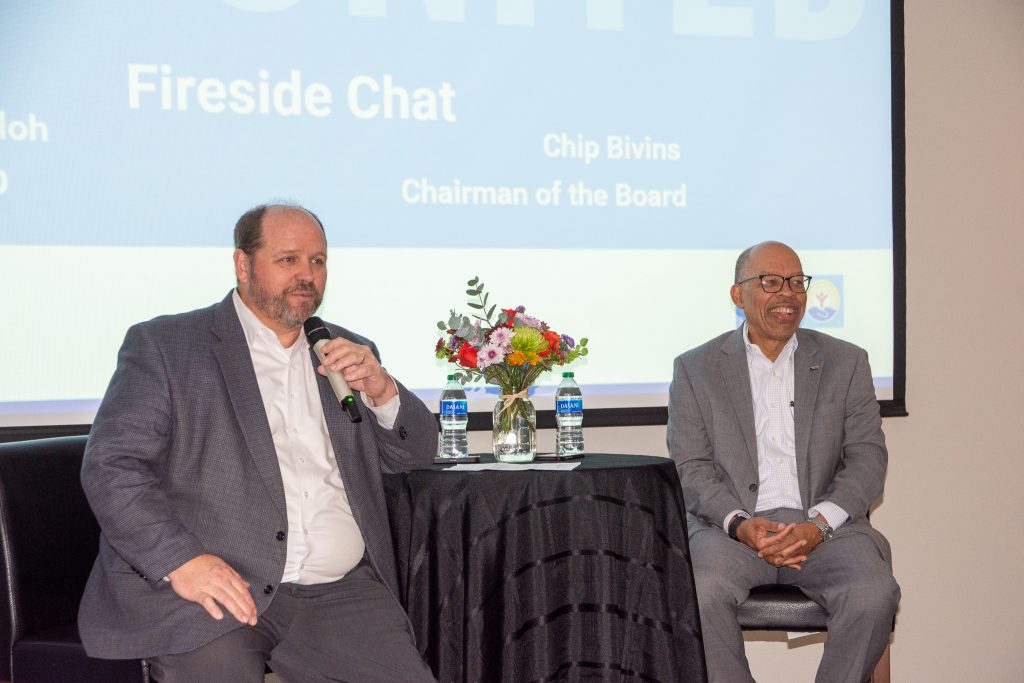
Langloh pointed out that while nonprofit staff should be doing 99 percent of the work, they need volunteers — members of their boards — to help them access resources.
“We need volunteers to help us do the things we just can’t do. Volunteers should bring access to people, to relationships, to resources, but we don’t need them to run the fundraising machine or our strategy, or execute on it,” Langloh said. “We need them to open the doors, to give us access to their circles of influence.”
Antoine Liddell, Board Chair for the Literacy Council of Central Alabama and a board member for the Birmingham Urban League, said that defining the relationship between each organization’s board and its executive director is sure to help make each agency more effective and efficient in its operations.
With more than 50 representatives of Central Alabama agencies at the training, nonprofit professionals of all experience levels were able to learn from one another. The size and diversity among UWCA’s network provide a lot of value, said Catherine Goudreau, who became Executive Director of Better Basics in May 2023.
“There are also people in this room who’ve been executive directors as long as I’ve been alive, who understand best practices and can share those, and they do,” Goudreau said. “That’s one of my favorite things about nonprofit culture is that there’s no protectiveness around ideas or creativity. Folks really want to share.”
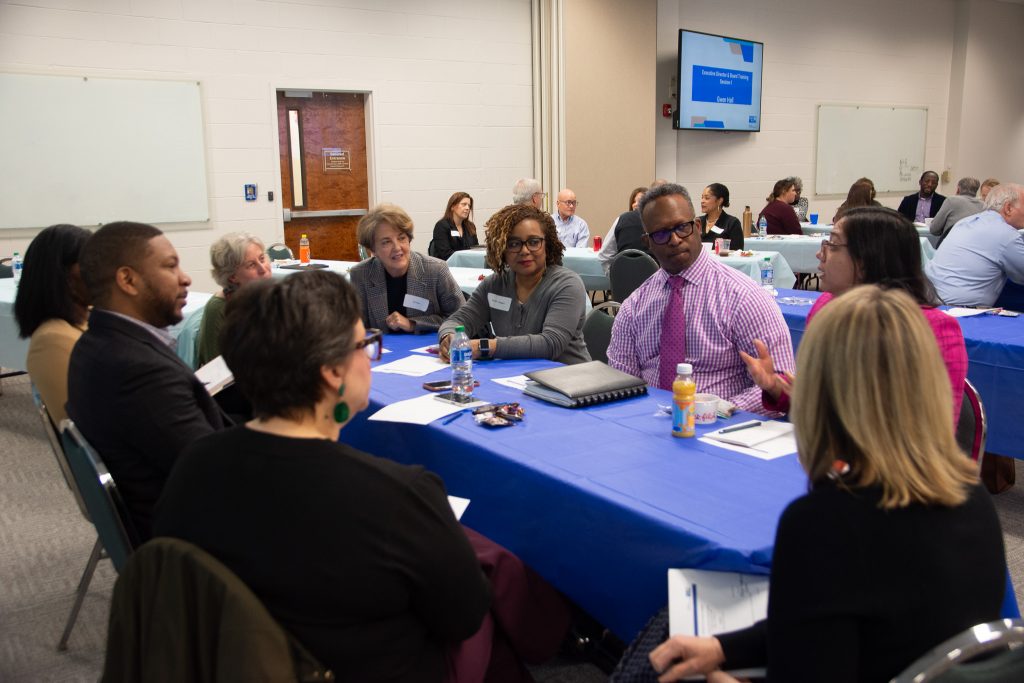
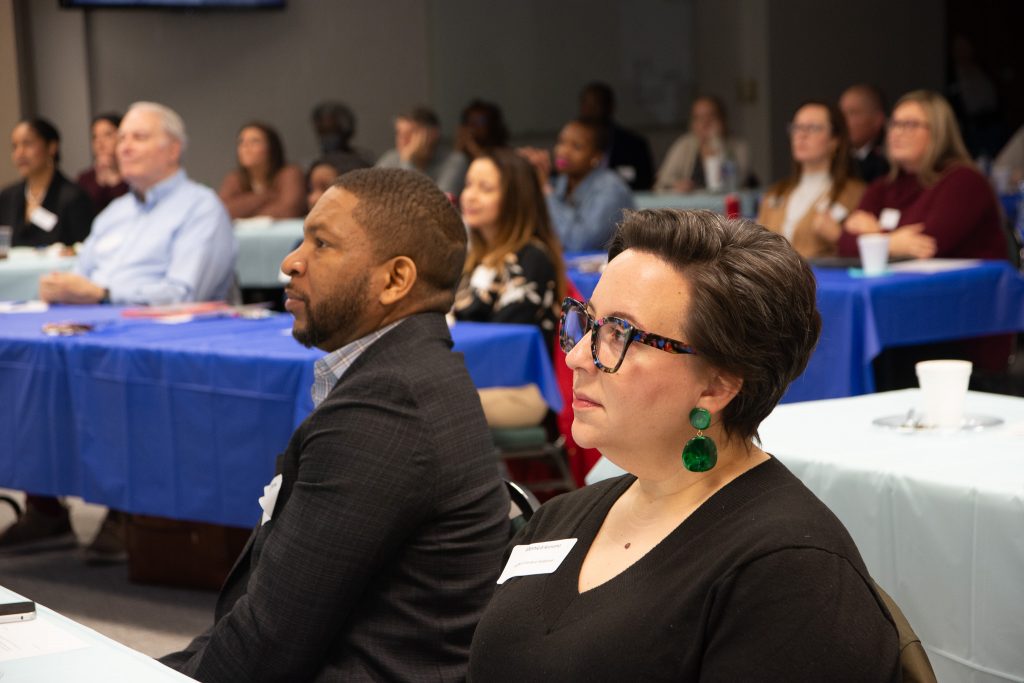
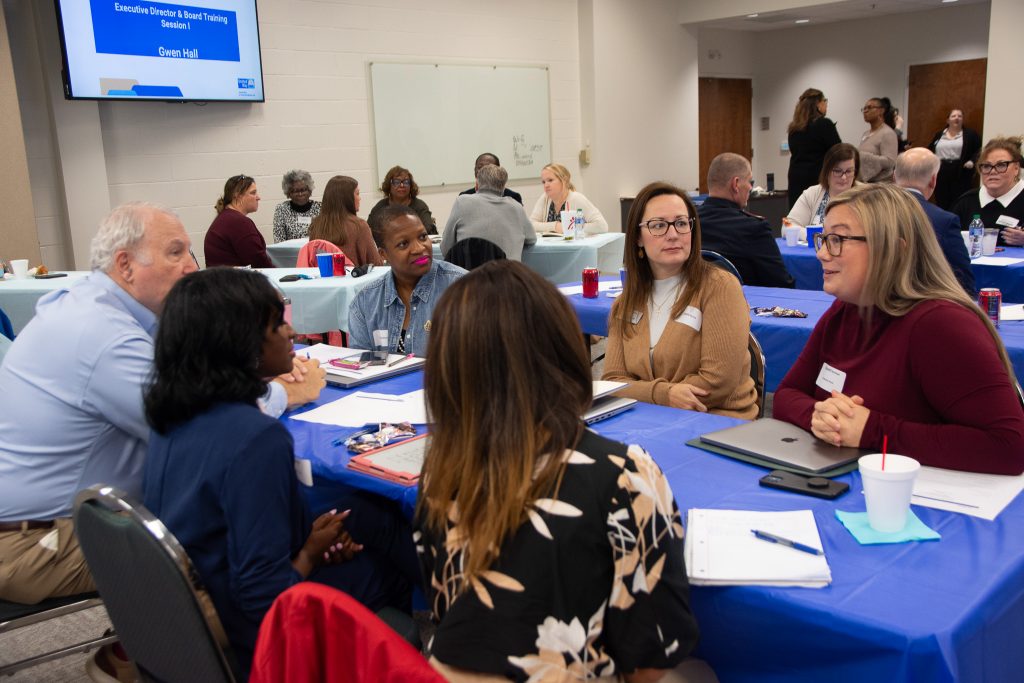
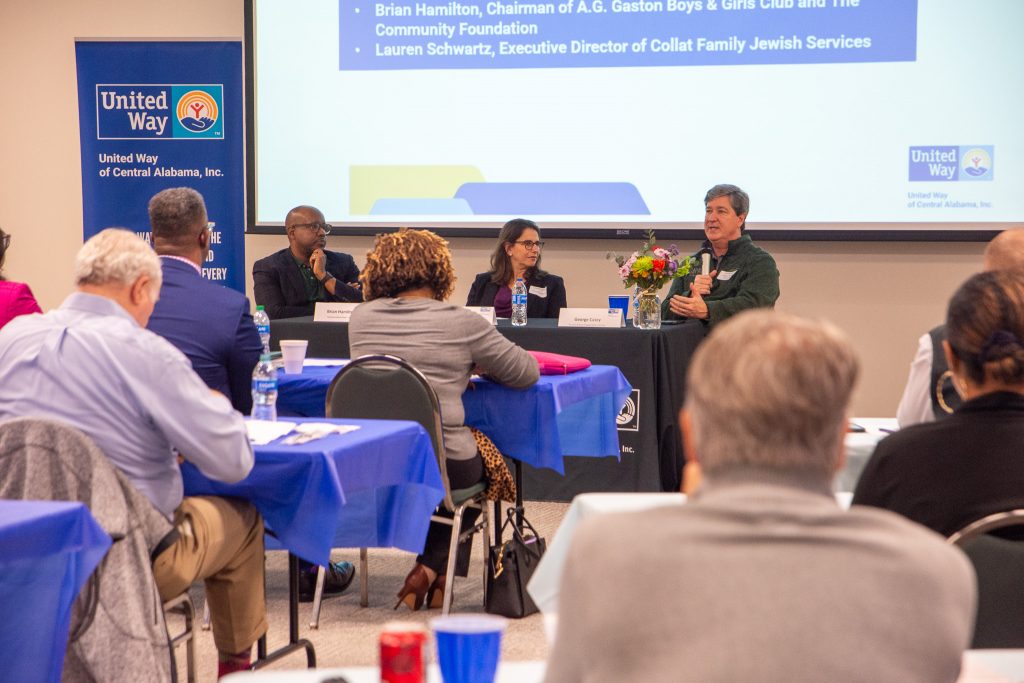
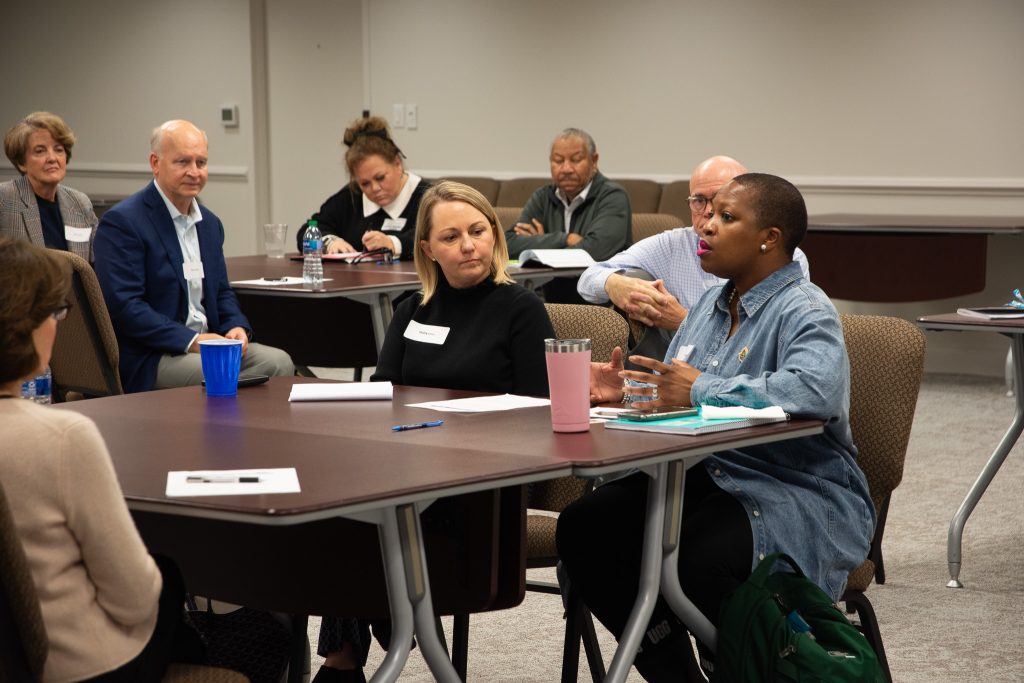
The recent Executive Director and Board of Directors training is all part of UWCA’s strategy to ensure partner agencies are equipped with the tools to most effectively care for people in Central Alabama. UWCA will continue to provide training for local agencies throughout the year and throughout the organization’s six-county service area.